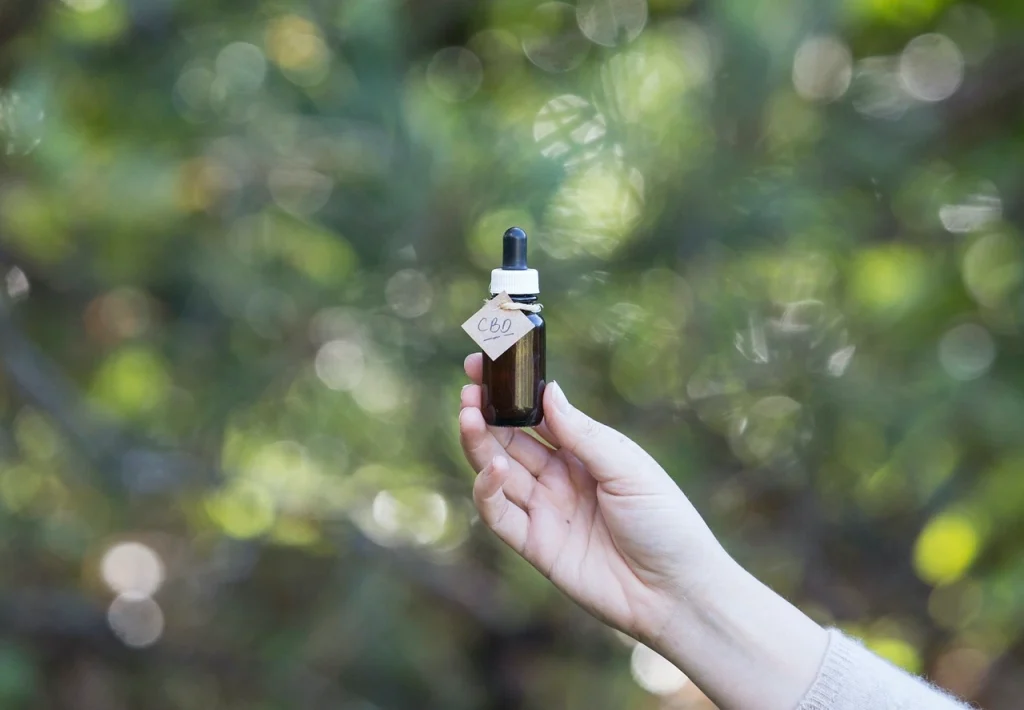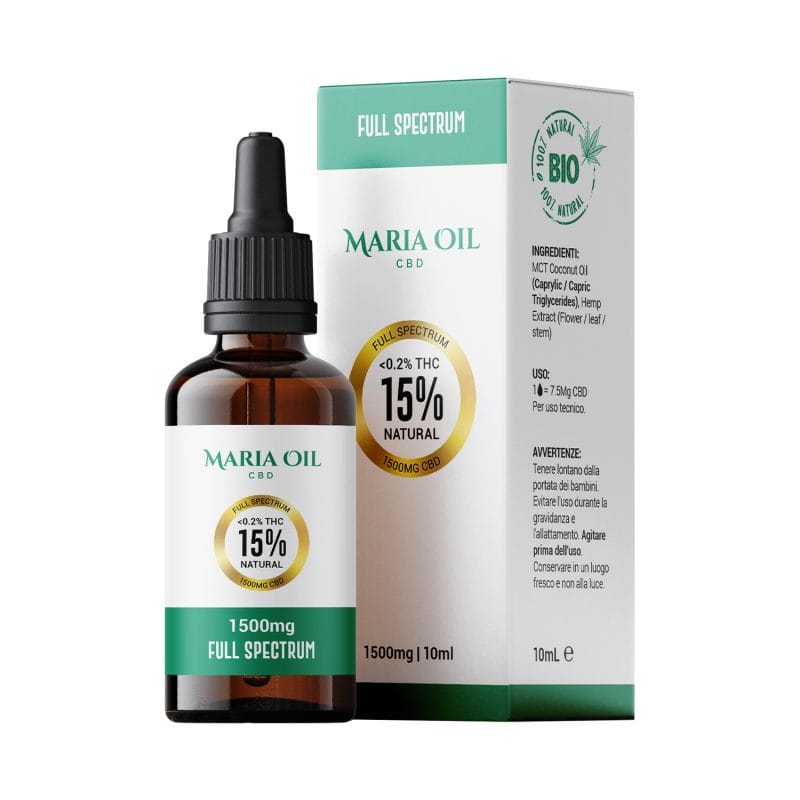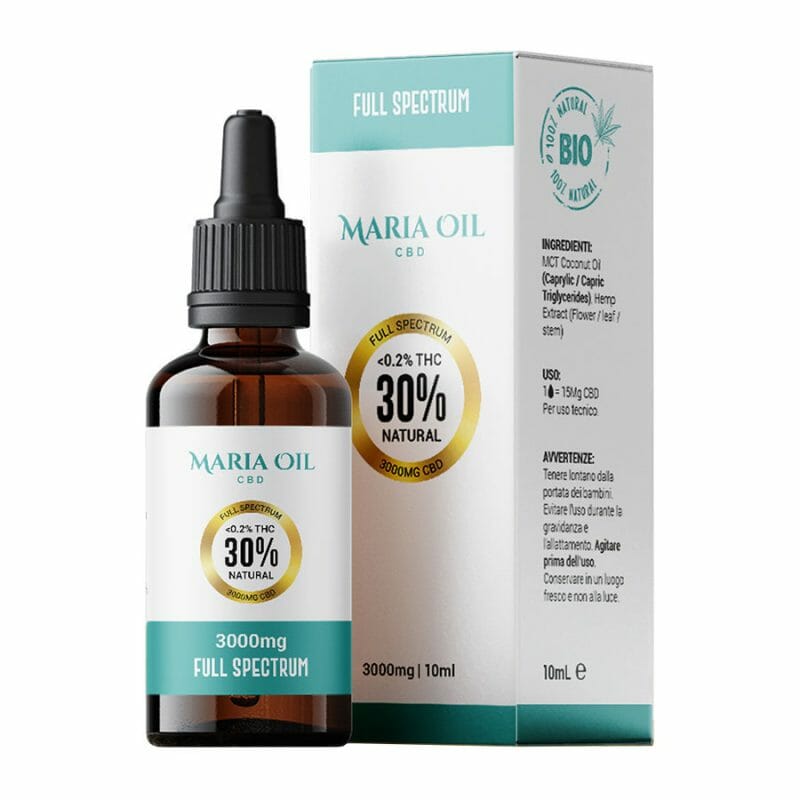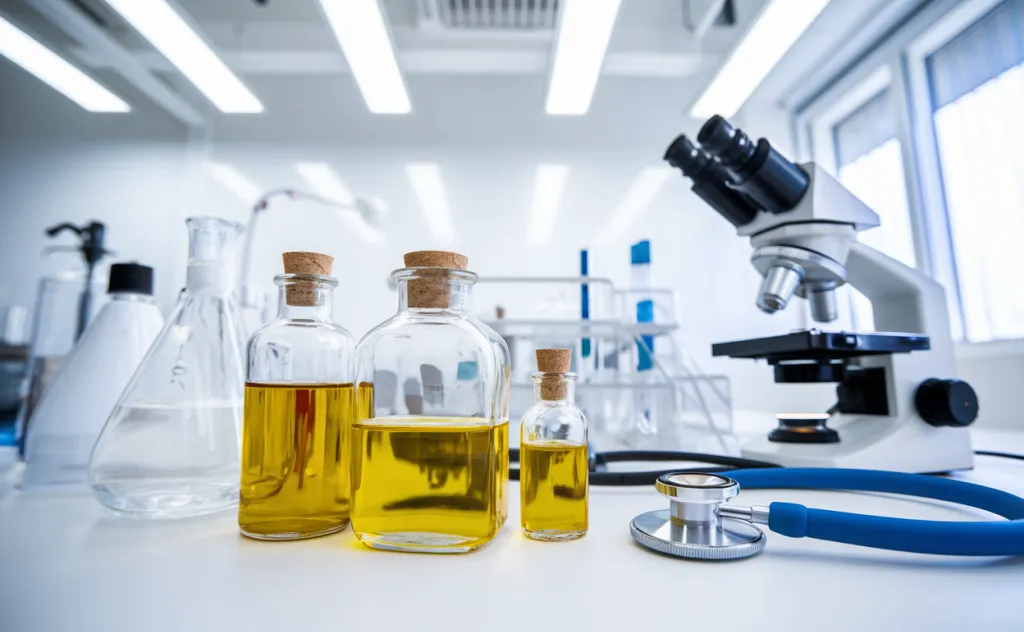In recent years, CBD has gained increasing attention for its potential therapeutic properties, including its application in the context of cancer.
Although CBD is best known for its relaxing and anti-inflammatory effects, many studies have been exploring its ability to interact with tumor cells and relieve some of the symptoms related to the disease and cancer treatments, such as chemotherapy and radiation therapy.
This attention has opened a debate on how CBD and cancer may have a positive relationship, both as a complementary therapy and as an anti-tumor agent.
In fact, some clinical and preclinical studies suggest promising results. CBD could inhibit the growth of some tumor cells in vitro, especially in cases of brain, breast and colon tumors. CBD is also known for its ability to relieve chronic pain, reduce nausea and improve the appetite, making it an interesting choice for cancer patients facing the side effects of conventional treatments.
Cancer: an overview
Cancer is a complex disease characterised by the uncontrolled proliferation of abnormal cells that can form masses called tumores, or in the case of blood tumors such as leukemia, spread more widely throughout the body. Tumor cells are different from normal cells as they don’t respond to the growth or stop signals that regulate normal cells, continuing to divide in a disordered way.
This leads to the formation of malignant tumors that can invade the surrounding tissues and, in some cases, spread to other parts of the body through the lymphatic system or bloodstream, through a process called metastasis.
There are numerous types of cancer, each affecting specific organs or tissues. The most common types include:
- Breast cancer: one of the most common forms among women worldwide, even though it could also affect men, which is rarer.
- Lung cancer: often associated with cigarette smoking, but can also develop in people who have never smoked.
- Prostate cancer: common among men, especially those over 50.
- Colorectal cancer: it affects the large intestine and rectum, and it’s usually associated with lifestyles, such as high-fat, low-fiber diet.
- Melanoma: a skin tumor that can result from prolonged exposure to UV rays, such as those from the sun or tanning beds.
Cancer treatments depend on the type of tumor, its location and stage of development, but there are different traditional approaches:
- Surgery: used to physically remove the tumor or, in some cases, organs affected from cancer. It is often the first line of treatment for localised solid tumors.
- Chemotherapy: this involves the use of powerful drugs that attack and destroy the tumor cells, but can also affect healthy cells, leading to significant side effects, such as nausea, tiredness and hair loss.
- Radiation therapy: it uses high-energy radiation to destroy or reduce tumors. It can be used as a primary or complementary treatment, before or after surgery.
- Immunotherapy: it stimulates the body’s immune system to recognise and attack tumor cells, a promising approach for many types of cancer.
- Hormone therapy: used hormone-sensitive types of cancer, such as breast and prostate cancer, it acts by blocking or reducing the activity of hormones such as estrogens or androgens that can fuel tumor growth.
Treatments are often combined to maximise the effectiveness and reduce the possibility of recurrence. Deciding which treatment to follow depends on many factors, including the stage of the tumor, the patient’s general health and their response to the treatments.
Each type of treatment carries potential side effects, ranging from tiredness and nausea to more serious complications, but medical advances keep improving the quality of life and survival for many cancer patients.

What is CBD?
CBD (or cannabidiol) is one of the main chemical compounds found in cannabis plants, known for its therapeutic effects without causing psychoactive alterations.
CBD interacts with the body’s endocannabinoid system, affecting functions such as sleep, mood, inflammation and pain, and is commonly used to treat conditions such as anxiety, insomnia and chronic pain.
In comparison, THC (tetrahydrocannabinol) is another cannabinoid found in cannabis, but unlike CBD, it is known for its psychoactive effects, which is the ‘high’ feeling that people associate with marijuana use.THC can also have therapeutic properties, such as pain relief and increased appetite, but it is the main responsible for the euphoric effects that alter mental perception.
The main difference between CBD and THC therefore lies in their ability to affect the mind: CBD offers therapeutic benefits without psychoactive effects, while THC alters the mind and is subject to greater legal restrictions in many regions.
-
Product on sale
 CBD Oil 15% (1500mg) Full SpectrumPrice range: £31.20 through £51.20From 1,71 €/gr
CBD Oil 15% (1500mg) Full SpectrumPrice range: £31.20 through £51.20From 1,71 €/gr -
Product on sale
 CBD Oil 25% (2500mg) Full SpectrumPrice range: £47.20 through £67.20From 2,24 €/gr
CBD Oil 25% (2500mg) Full SpectrumPrice range: £47.20 through £67.20From 2,24 €/gr -
Product on sale
 CBD Oil 30% (3000mg) Full SpectrumPrice range: £55.20 through £75.20From 2,51 €/gr
CBD Oil 30% (3000mg) Full SpectrumPrice range: £55.20 through £75.20From 2,51 €/gr
What are endogenous cannabinoids?
Endogenous cannabinoids, also known as endocannabinoids, are molecules naturally produced by the human body that play a key role in regulating many bodily functions.
These compounds are part of the endocannabinoid system, a recently discovered biological system that helps maintain the body’s internal balance, known as homeostasis. The two main endocannabinoids identified so far are anandamide and 2-AG (2-arachidonoylglycerol), which act on specific receptors found throughout the body, such as CB1 receptors, located primarily in the brain and nervous system, and CB2 receptors, primarily in the immune system.
Endocannabinoids influence a wide range of functions, including pain control, mood, appetite, memory and the immune system. Unlike cannabis-derived cannabinoids, such as CBD and THC, endocannabinoids are produced internally and rapidly degraded after their function is complete, thus maintaining a dynamic balance in the body.
The therapeutic use of CBD
Researchers are exploring how CBD and cancer might interact, a topic of growing scientific interest, thanks to its potential benefits both in alleviating symptoms associated with the disease and in supporting traditional cancer treatments. Here are some of the main areas where CBD can be useful in cancer patients:
- Pain relief: CBD can reduce chronic pain caused by cancer or treatments such as chemotherapy, acting as a natural analgesic without the harsh side effects of opioids.
- Nausea and vomiting: CBD has been shown to be effective in reducing nausea and vomiting caused by chemotherapy treatments, improving the quality of life of patients.
- Appetite: CBD can stimulate appetite, counteracting weight loss and cachexia (physical wasting) often associated with cancer and its treatments.
- Anxiety and depression: Many cancer patients suffer from anxiety and depression during the treatment, CBD can help improve mood and reduce anxiety, promoting a more stable emotional state.
- Anti-tumor effect: Preclinical studies suggest that CBD may have a direct effect on tumor cells, slowing their growth and inhibiting proliferation in some types of cancer, such as brain, breast and lung cancer, although more clinical research is needed.
- Relaxation and sleep: CBD can improve the quality of sleep of cancer patients, helping to reduce insomnia and promoting relaxation, which is crucial for physical and mental recovery.
Although preliminary results are promising, it is important to note that CBD is not a replacement for traditional cancer treatments, such as chemotherapy or radiation therapy. Its use as complementary treatment should always be discussed with a doctor to ensure safety and optimal integration with other treatment protocols.
-
Product on sale
 CBD Oil 15% (1500mg) Full SpectrumPrice range: £31.20 through £51.20From 1,71 €/gr
CBD Oil 15% (1500mg) Full SpectrumPrice range: £31.20 through £51.20From 1,71 €/gr -
Product on sale
 CBD Oil 25% (2500mg) Full SpectrumPrice range: £47.20 through £67.20From 2,24 €/gr
CBD Oil 25% (2500mg) Full SpectrumPrice range: £47.20 through £67.20From 2,24 €/gr -
Product on sale
 CBD Oil 30% (3000mg) Full SpectrumPrice range: £55.20 through £75.20From 2,51 €/gr
CBD Oil 30% (3000mg) Full SpectrumPrice range: £55.20 through £75.20From 2,51 €/gr
What does science say in Italy?
In Italy, the study launched by the University of Modena and Reggio Emilia on CBD and cancer represents an important initiative in oncology research. The main objective is to evaluate the ability of CBD to act selectively on tumor cells, leaving healthy cells intact, and to reduce the proliferation of cancer cells.
This could open up new possibilities for the use of CBD as a complement to chemotherapy or other traditional treatments, reducing side effects, such as nausea, pain and inflammation, without compromising the effectiveness of the cancer treatment.
Here are the highlights of the study:
- Selective action: CBD seems to attack tumor cells, protecting the healthy ones, a crucial quality for less invasive therapies.
- Reduced cell proliferation: Early research has shown that CBD is able to limit the growth of tumor cells in some specific cell lines.
- Support for traditional treatments: CBD can be used to reduce the side effects of chemotherapy and radiation therapy, offering relief from nausea, chronic pain and inflammation.
- Anti-inflammatory properties: Besides acting directly against tumor cells, CBD has shown to relieve inflammation and related symptoms, improving the quality of life of cancer patients.
The research is in its preliminary stages, but the results obtained so far are promising and could lead to new therapeutic strategies. However, before jumping to conclusions, further clinical studies will be needed to confirm the efficacy of CBD in treating tumors, especially in combination with other cancer treatments.
Further research could represent a turning point in the way cancer is treated, offering more targeted and less invasive treatments for patients.
Italian research reflects a growing global interest in the potential of CBD in cancer medicine, and the results could pave the way to new therapeutic approaches.
CBD and cancer: the beneficial effects
CBD is emerging as a promising complementary option in the fight against cancer, due to its potential anti-tumor effects that have been investigated in several studies. Some preclinical studies suggest that CBD can:
- Stop tumor cell proliferation: By slowing the growth of malignant cells in different types of tumors.
- Induce apoptosis: By promoting the programmed death of tumor cells, a process often impaired in tumors.
- Limit angiogenesis: By preventing the formation of new blood vessels necessary for tumor growth.
- Prevent metastasis: By preventing the spreading of tumor cells to other parts of the body.
In addition to its direct effects on tumors, CBD has been shown to improve the quality of life of cancer patients by alleviating symptoms such as nausea, chronic pain, and anxiety, often associated with traditional treatments such as chemotherapy.
The anti-tumor and analgesic properties of CBD contribute to reducing the side effects of treatments and aid the body in the recovery process.
-
Product on sale
 CBD Oil 15% (1500mg) Full SpectrumPrice range: £31.20 through £51.20From 1,71 €/gr
CBD Oil 15% (1500mg) Full SpectrumPrice range: £31.20 through £51.20From 1,71 €/gr -
Product on sale
 CBD Oil 25% (2500mg) Full SpectrumPrice range: £47.20 through £67.20From 2,24 €/gr
CBD Oil 25% (2500mg) Full SpectrumPrice range: £47.20 through £67.20From 2,24 €/gr -
Product on sale
 CBD Oil 30% (3000mg) Full SpectrumPrice range: £55.20 through £75.20From 2,51 €/gr
CBD Oil 30% (3000mg) Full SpectrumPrice range: £55.20 through £75.20From 2,51 €/gr
Conclusion
If you’re looking for CBD-based natural solutions to improve your general well-being or alleviate symptoms related to conditions such as cancer, visit Maria CBD Oil’s CBD Shop.
Here you will find a wide range of CBD-based products, including oils and other items, which can support relaxation, sleep and pain relief. Find out how CBD can help you improve your quality of life naturally!
 Contact us
Contact us 






